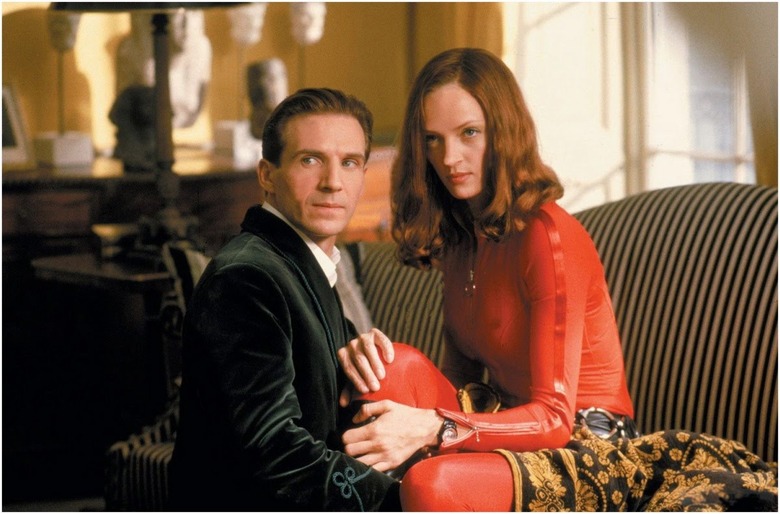HDTGM: A Conversation With Jeremiah Chechik, Director Of The Avengers
We may receive a commission on purchases made from links.
In June 1987, in an interview for The New York Times, Stanley Kubrick spoke glowingly about a series of Michelob beer commercials.
"They're just boy-girl, night-fun," Kubrick praised, "leading up to pouring the beer, all in 30 seconds, beautifully edited and photographed. Economy of statement is not something that films are noted for.”
That piece published on a Sunday. The following day—after interested parties tracked down who was responsible for these spots—the phone of fashion photographer turned commercial director Jeremiah Chechik started rining off the hook.
Living up to that hype, Jeremiah Chechik's first feature, Christmas Vacation, dazzled at the box office. Over the next decade, Chechik continued to rise up the ranks, establishing himself as a profitable director and, perhaps as importantly, a director known to work well with actors and the studios. Which is why, in the mid-'90s, he was tapped by Warner Bros. to direct a $60 million summer action film based on a popular '60's British TV show called The Avengers. With a stellar cast (Ralph Fiennes, Uma Thurman and Sean Connery) a legendary producer (Jerry Weintraub) and a top-tier British screenwriter (Don Macpherson), The Avengers seemed like a can't miss film.
Unfortunately though, it missed the mark by a wide margin and drastically changed the trajectory of Jeremiah Chechik's career. But what, at first, may have looked like a fall from grace wound up leading Chechik to terrific success in another medium. To find out what went wrong and then, ultimately, what went right, we spoke with the talented filmmaker and took a stroll down memory lane...
The Avengers Oral History
How Did This Get Made is a companion to the podcast How Did This Get Made with Paul Scheer, Jason Mantzoukas and June Diane Raphael which focuses on movies This regular feature is written by Blake J. Harris, who you might know as the writer of the book Console Wars, soon to be a motion picture produced by Seth Rogen and Evan Goldberg. You can listen to The Avengers edition of the HDTGM podcast here. Synopsis: When a villainous foe discovers a way to control the weather, a pair of posh British secret agents team up to save the world.Tagline: When Evil Reigns, Only One Team Can Weather The Storm.
Part 1: Exploring the Nexus
Blake Harris: So before we really get started, I feel compelled to thank you for something you did years ago.Jeremiah Chechik: Oh yeah?Blake Harris: Yeah, Christmas Vacation—your first feature—was actually how I found out that Santa Claus isn't real.Jeremiah Chechik: [laughing]Blake Harris: And while one could say that you're responsible for robbing me of my innocence, I prefer to think of you as the guy responsible for ushering me into manhood. So thank you for that!Jeremiah Chechik: Happy to help.Blake Harris: So going back a few years—innocence still intact—I'd love to hear a bit about how you got into filmmaking. Was it something you were interested in as a kid?Jeremiah Chechik: I grew up in Montreal, in Quebec. And filmmaking there, at that time, was really a purview of the national board: documentaries, experimental animation and art films. People who worked there were effectively working for a government agency. And you'd have to be in the inner sanctum to even get involved there. So I grew up in an environment where movie making was quite a foreign occupation. In other words, there was no path to entry.Blake Harris: So without film as the focus, how did your creativity manifest?Jeremiah Chechik: I studied theater at McGill University. Eventually I gave that up, but obviously some of that stayed with me in terms of experiencing the director/actor storytelling aspect of it. And as I evolved, creatively, I started painting and doing some stone lithography and just working in that medium. I was quite young, but I was getting grants and showing. Then I started to explore photography as a way to kind of visually root some of the more physical drawings that I was doing and became quite enamored with it. Eventually went on with some partners to develop some of the very first art holograms ever made. And we started to show in New York and became quite expert in that. But, you know, during that time I was meeting with other artists—Warhol, included—and started to explore, basically, the nexus of commercial art and fine art. And that eventually led me to fashion photography.Blake Harris: Fashion photography?Jeremiah Chechik: Yeah, and through a series of good fortune I started working for Italian Vogue. Spent years in Italy doing that and then eventually moved back to New York and started to do commercials. First in fashion, and then eventually circled back to performance. A little while after that, I caught the eye of some well-known directors and producers in Hollywood, and effectively they brought me out from New York and I started to develop and eventually make movies.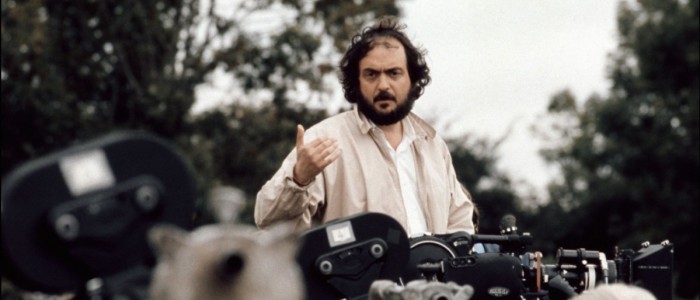 Blake Harris: And one of those "well-knowns" whose eye you caught was Stanley Kubrick, is that correct?Jeremiah Chechik: Yeah. He had given an interview and pointed out some of the commercials that I was making. That's really it.Blake Harris: Amazing.Jeremiah Chechik: You know, some of it is great fortune and some of it is creating your own opportunities. I've always just tried to make the most of the opportunities that were given to me. And try to lead as much of a creative life as I could.
Blake Harris: And one of those "well-knowns" whose eye you caught was Stanley Kubrick, is that correct?Jeremiah Chechik: Yeah. He had given an interview and pointed out some of the commercials that I was making. That's really it.Blake Harris: Amazing.Jeremiah Chechik: You know, some of it is great fortune and some of it is creating your own opportunities. I've always just tried to make the most of the opportunities that were given to me. And try to lead as much of a creative life as I could.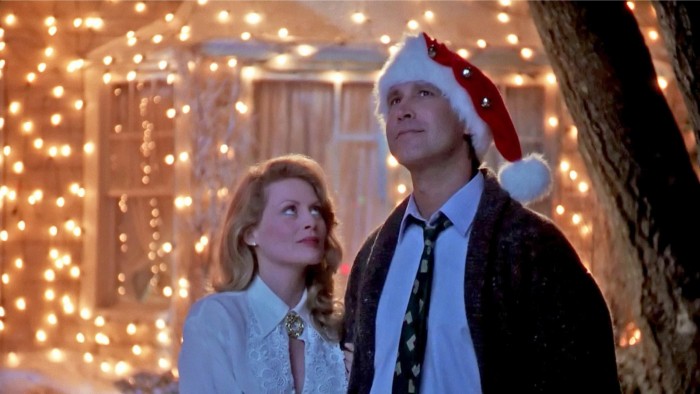 Blake Harris: One of those early opportunities was Christmas Vacation. How did you become involved with that project?Jeremiah Chechik: Well prior to that, I was developing a movie at Amblin, actually. It was a very small movie with Warners as the distributor. What happened with that project is a long story, but the upshot was that during the development process I formed some significant relationships with people at Warners. They took a shine to me and started to offer me projects. And even though I had not done any comedy, the script that really caught my eye, the one that I really loved, was John Hughes' script for Christmas Vacation.Blake Harris: Do you remember what it was about that script that caught your eye? Especially because—to your point—you didn't really come from a comedy background.Jeremiah Chechik: I mean, they sent me this script and asked me if I was interested. And my initial reaction was: Holy shit, this is really funny. Really, really, really, funny.
Blake Harris: One of those early opportunities was Christmas Vacation. How did you become involved with that project?Jeremiah Chechik: Well prior to that, I was developing a movie at Amblin, actually. It was a very small movie with Warners as the distributor. What happened with that project is a long story, but the upshot was that during the development process I formed some significant relationships with people at Warners. They took a shine to me and started to offer me projects. And even though I had not done any comedy, the script that really caught my eye, the one that I really loved, was John Hughes' script for Christmas Vacation.Blake Harris: Do you remember what it was about that script that caught your eye? Especially because—to your point—you didn't really come from a comedy background.Jeremiah Chechik: I mean, they sent me this script and asked me if I was interested. And my initial reaction was: Holy shit, this is really funny. Really, really, really, funny.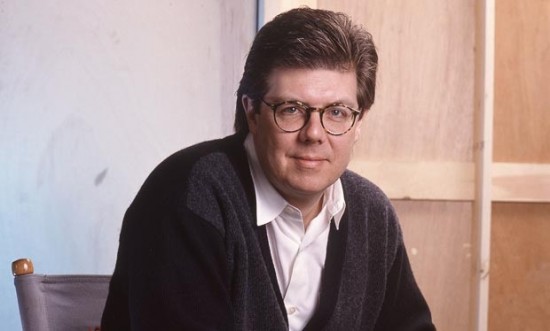 Blake Harris: The great John Hughes! What was your relationship like with him? Did the two of you interact much?Jeremiah Chechik: Lots. He was a great mentor. And just, you know, a pretty remarkable personality. Amazing writer. A lot of fun. I got on great with him. And once he decided I was the guy, he just literally handed the reins over to me and left to make one of his films. After that, he was there really to just ensure that I never got into any issues with the studios. In other words: He protected my vision of the film.Blake Harris: So basically after being noticed by Stanley Kubrick, you worked with Steven Spielberg and then John Hughes. What was it like for you, at such a young age, to be around such incredible talents? Did you ever find that intimidating?Jeremiah Chechik: Oh, it was very exciting. And, you know, I had a lot of experience by then in terms of being on set (having been a commercial director) so the process was not foreign to me. Albeit, it was early on in my career and I was quite a novice then. But I did have a language to kind of speak to actors about performance. So yeah, it was exciting and there was a lot to learn, yet I always felt comfortable. I just tried to listen and learn as much as I could, never pretending that I had more experience than I actually had. And I loved every moment of it. We shot Christmas Vacation on the Warners lot, so I was very aware of, I guess, the connection to those who came before me. That was very, very exciting. And I all I did was try to make a movie that I thought was funny personally and just hoped that other people would respond that way.
Blake Harris: The great John Hughes! What was your relationship like with him? Did the two of you interact much?Jeremiah Chechik: Lots. He was a great mentor. And just, you know, a pretty remarkable personality. Amazing writer. A lot of fun. I got on great with him. And once he decided I was the guy, he just literally handed the reins over to me and left to make one of his films. After that, he was there really to just ensure that I never got into any issues with the studios. In other words: He protected my vision of the film.Blake Harris: So basically after being noticed by Stanley Kubrick, you worked with Steven Spielberg and then John Hughes. What was it like for you, at such a young age, to be around such incredible talents? Did you ever find that intimidating?Jeremiah Chechik: Oh, it was very exciting. And, you know, I had a lot of experience by then in terms of being on set (having been a commercial director) so the process was not foreign to me. Albeit, it was early on in my career and I was quite a novice then. But I did have a language to kind of speak to actors about performance. So yeah, it was exciting and there was a lot to learn, yet I always felt comfortable. I just tried to listen and learn as much as I could, never pretending that I had more experience than I actually had. And I loved every moment of it. We shot Christmas Vacation on the Warners lot, so I was very aware of, I guess, the connection to those who came before me. That was very, very exciting. And I all I did was try to make a movie that I thought was funny personally and just hoped that other people would respond that way.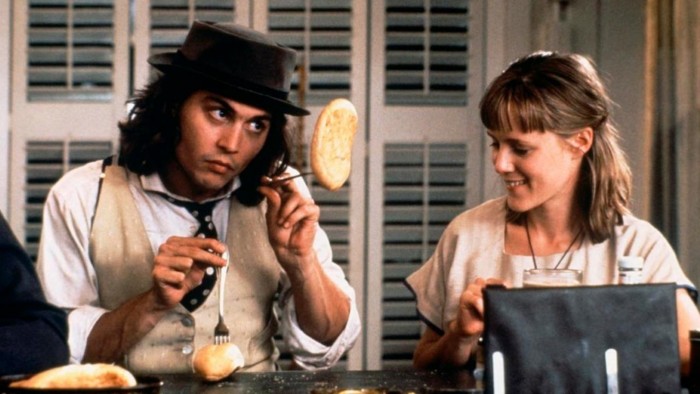 Blake Harris: One of the next films you directed was Benny & Joon. How did that project come together?Jeremiah Chechik: Benny & Joon was a script that we developed. The early script had very little relationship to the final movie—in terms of character and tone—but it had a similar structure and I was attracted to that structure. At that point in time, Alan Ladd Jr. was running MGM, so we were working with him. And he was really an executive who supported and was behind the director's creative vision. So we just evolved this to the point where we really fell in love with its uniqueness and set out to cast it, which we did. And the studio was great, they basically said: Just make it for a budget and we won't interfere. Nor did they.Blake Harris: That lack of interfering perhaps makes for a good (albeit unfortunate) segue to The Avengers: a film that was notoriously interfered with in so many possible ways. We'll get more into the specifics in a bit, but just generally speaking, what was that experience like for you?Jeremiah Chechik: You know, Sometimes you're on a runaway train and you just have to ride it. In my case, I felt more like Jon Voight on a runaway train.
Blake Harris: One of the next films you directed was Benny & Joon. How did that project come together?Jeremiah Chechik: Benny & Joon was a script that we developed. The early script had very little relationship to the final movie—in terms of character and tone—but it had a similar structure and I was attracted to that structure. At that point in time, Alan Ladd Jr. was running MGM, so we were working with him. And he was really an executive who supported and was behind the director's creative vision. So we just evolved this to the point where we really fell in love with its uniqueness and set out to cast it, which we did. And the studio was great, they basically said: Just make it for a budget and we won't interfere. Nor did they.Blake Harris: That lack of interfering perhaps makes for a good (albeit unfortunate) segue to The Avengers: a film that was notoriously interfered with in so many possible ways. We'll get more into the specifics in a bit, but just generally speaking, what was that experience like for you?Jeremiah Chechik: You know, Sometimes you're on a runaway train and you just have to ride it. In my case, I felt more like Jon Voight on a runaway train.
Part 2: Alice in Wonderland (with Amnesia)
Blake Harris: So tell me about The Avengers. How did that project come about? Why was it a story that the producers thought should be told at that point in time, the late '90s?Jeremiah Chechik: Well it certainly wasn't my idea to make it. Jerry Weintraub—RIP Jerry, I loved him to death—one of the great Hollywood old-school producers put that project together.Blake Harris: He really is a legend. That documentary about Jerry Weintraub, His Way, is one of my all-time favorites.Jeremiah Chechik: Yeah, he was just great. And he became a very, very dear friend as well. I think most of the creative people he worked with would say the same thing: that he was just a wonderful person, a wonderful human. Anyway, he offered The Avengers to me and we developed it, you know. We developed it to the point where we wanted to make it. But then as we moved forward, things happened at the studio.Blake Harris: What kind of things?Jeremiah Chechik: There was a lot of political shifting. There were people at the studio who didn't want to make it. Who felt it was too artsy, too English, etcetera... They wanted a straight-up action movie. Well, you know, we weren't making that movie. So there was a lot of tension. And that tension really manifested in the post-production when the allies of that film—the executives who were responsible for it—were summarily fired or left. And then the people now in charge were the people who didn't want to make the movie in the first place. So post-production was a rather miserable experience for me.Blake Harris: Did you have any sense prior to post that this schism was going on?Jeremiah Chechik: Yeah. But when you're shooting, you're buried in the process. I mean, you still have one eye on that, but there's nothing you can do about it. And remember, I'm thousands of miles away in London. And the studios are here in L.A.Blake Harris: That makes sense.Jeremiah Chechik: But I definitely want to make clear that the actual making of the movie—the prep and the shooting of that movie—was fantastic. A great delight. And just, you know, in all of those dailies, there's a whole other movie. And maybe one day they can put together my director's cut kind of tone and the music I wanted. And not the bastardized version of it.Blake Harris: Well that's what I'd like to focus on: the delightful version of the movie. Tell me what even attracted you to the project?Jeremiah Chechik: Well first off, I was attracted to these characters, which I knew very well from when I was younger. I liked the idea of making a very surreal, unrequited romance that was framed by intensely surreal visuals. You don't normally get to do that in a studio setting, so it was a real attractive sense and tone. To do something as elliptical and as interesting as that. What I learned is you don't set out to make a very expensive art movie for a studio.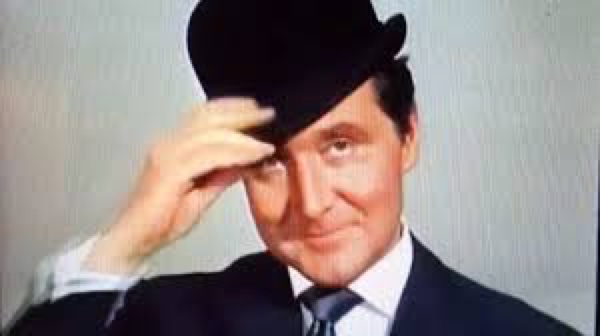 Blake Harris: You mentioned you watched the TV show as a kid. Were you a big fan of the original show? Did you go back and re-watch the episodes?Jeremiah Chechik: Yes and yes. I was a big fan of the show originally. I had grown up in Canada, so we had seen all of those British shows, we experienced all those shows like The Prisoner, Secret Agent Man and, of course, The Avengers. All of that was part of my early TV vernacular. And yes I went back and watched it. So it was exciting, it was really, really exciting. And I thought Don MacPherson [the screenwriter] did a great job with the script.Blake Harris: Have you re-watched the movie recently? Revisited it?Jeremiah Chechik: No. I mean, I can't watch it. It's very difficult to see a movie where it's not the movie that I set out to make, because the studio had ended up cutting out so many interesting linkages that created the logic itself of the illogical universe. It's kind of like watching Alice in Wonderland without any clue that she went down the rabbit hole. Like: Who is this person?Blake Harris: [laughing]Jeremiah Chechik: Those things upset me, but there were (and still are) a lot of people that are drawn to the visual language of it. And the kind of crazy performances and the kind of odd sensibility of it. I mean, it still remains a very beautiful movie. And my love for my actors on it, it just had no bounds. It was great working with Sean [Connery]. It was great working with Eileen Atkins and Jim Broadbent. And of course Ralph [Fiennes] and Uma [Thurman]. Ralph I had known for many years before. We always wanted to do something together.
Blake Harris: You mentioned you watched the TV show as a kid. Were you a big fan of the original show? Did you go back and re-watch the episodes?Jeremiah Chechik: Yes and yes. I was a big fan of the show originally. I had grown up in Canada, so we had seen all of those British shows, we experienced all those shows like The Prisoner, Secret Agent Man and, of course, The Avengers. All of that was part of my early TV vernacular. And yes I went back and watched it. So it was exciting, it was really, really exciting. And I thought Don MacPherson [the screenwriter] did a great job with the script.Blake Harris: Have you re-watched the movie recently? Revisited it?Jeremiah Chechik: No. I mean, I can't watch it. It's very difficult to see a movie where it's not the movie that I set out to make, because the studio had ended up cutting out so many interesting linkages that created the logic itself of the illogical universe. It's kind of like watching Alice in Wonderland without any clue that she went down the rabbit hole. Like: Who is this person?Blake Harris: [laughing]Jeremiah Chechik: Those things upset me, but there were (and still are) a lot of people that are drawn to the visual language of it. And the kind of crazy performances and the kind of odd sensibility of it. I mean, it still remains a very beautiful movie. And my love for my actors on it, it just had no bounds. It was great working with Sean [Connery]. It was great working with Eileen Atkins and Jim Broadbent. And of course Ralph [Fiennes] and Uma [Thurman]. Ralph I had known for many years before. We always wanted to do something together.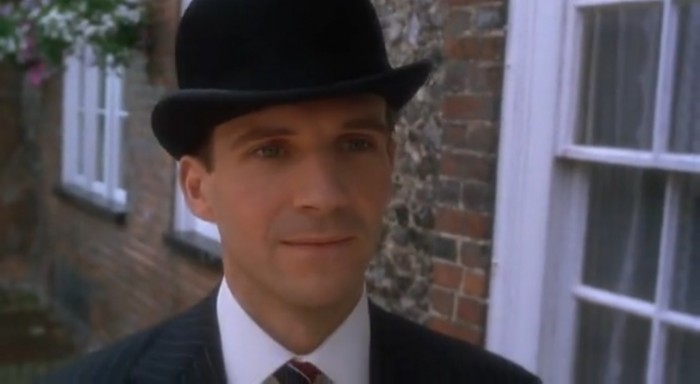 Blake Harris: Did the studio like the idea of Ralph starring in an action movie?Jeremiah Chechik: Yeah. Yeah. They thought it would be fun. Remember: He had done The English Patient. He was on their radar, they liked it, there was no issues.Blake Harris: What about Uma? How did you select her?Jeremiah Chechik: That was more the studio. The studio wanted me to cast Uma. Originally, Nicole Kidman was cast. But she had ended up with a major scheduling problem. She was cast in Kubrick's movie [Eyes Wide Shut] and he couldn't (or wouldn't) give a stop date to her, and the studio wouldn't push the movie to accommodate her and what I wanted. They wanted to shoot it, they needed the movie to feed their pipeline, and they recommended Uma. So I met with Uma and I thought: Wow, she's great. She's wonderful, I love her. So that's how it came about.
Blake Harris: Did the studio like the idea of Ralph starring in an action movie?Jeremiah Chechik: Yeah. Yeah. They thought it would be fun. Remember: He had done The English Patient. He was on their radar, they liked it, there was no issues.Blake Harris: What about Uma? How did you select her?Jeremiah Chechik: That was more the studio. The studio wanted me to cast Uma. Originally, Nicole Kidman was cast. But she had ended up with a major scheduling problem. She was cast in Kubrick's movie [Eyes Wide Shut] and he couldn't (or wouldn't) give a stop date to her, and the studio wouldn't push the movie to accommodate her and what I wanted. They wanted to shoot it, they needed the movie to feed their pipeline, and they recommended Uma. So I met with Uma and I thought: Wow, she's great. She's wonderful, I love her. So that's how it came about.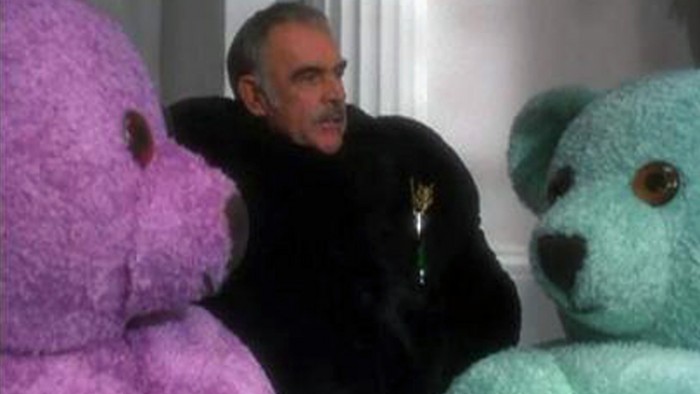 Blake Harris: And what about Sean Connery?Jeremiah Chechik: That was me 100 percent. I said, "Let's get Sean Connery to do this." And everyone said, "You'll never get him! He's never gonna do it and he's too expensive!" I just got the studio to send him a script and then he called me at home with that incredible voice and accent. And then I got on a plane, flew to Spain, we met and he committed.Blake Harris: Speaking of Sean Connery, one of the most memorable scenes in the movie is when he hosts a meeting of villains dressed in teddy bear costumes. And they discuss their nefarious plan to control the world's weather. I was curious where those ideas came from: the weather control and the teddy bear meeting?Jeremiah Chechik: Both ideas came out of Don MacPherson's screenplay. The teddy bear scene made me wanna direct the film.Blake Harris: Interesting. And if you don't mind my asking, I'm curious to hear what it's like to go from wanting to direct something to enduring unwanted changes to that thing you directed and then, ultimately, watching the film struggle at the box office. What was that like for you at the time?Jeremiah Chechik: Oh, it was brutal. It was brutal. I mean, it made me question everything about my choices in directing and what I wanted to do and who I was. It was extremely hurtful. I was devastated by it. And I knew it was coming, but I was still devastated by it. Because I was wearing...listen, maybe the movie would have been dreadful with my cut. Maybe it wouldn't have been commercially successful with my cut. But unfortunately we'll never know. And because of that, it was a stillborn and I was blamed. I mean, I'll wear it. It's what it is. But it still really, really hurt. So I literally had to kind of stop working—whether by choice or by market—but I just, I really went on a several year walkabout all over the world.Blake Harris: Where did you go?Jeremiah Chechik: To some very dangerous places in war-torn areas just to connect more with people. With real people. What one would call "the salt of the earth." You know, I crossed China. I was in the Gobi Desert. Africa, West Africa, all over. Came back and began to write and that started to go very, very well...
Blake Harris: And what about Sean Connery?Jeremiah Chechik: That was me 100 percent. I said, "Let's get Sean Connery to do this." And everyone said, "You'll never get him! He's never gonna do it and he's too expensive!" I just got the studio to send him a script and then he called me at home with that incredible voice and accent. And then I got on a plane, flew to Spain, we met and he committed.Blake Harris: Speaking of Sean Connery, one of the most memorable scenes in the movie is when he hosts a meeting of villains dressed in teddy bear costumes. And they discuss their nefarious plan to control the world's weather. I was curious where those ideas came from: the weather control and the teddy bear meeting?Jeremiah Chechik: Both ideas came out of Don MacPherson's screenplay. The teddy bear scene made me wanna direct the film.Blake Harris: Interesting. And if you don't mind my asking, I'm curious to hear what it's like to go from wanting to direct something to enduring unwanted changes to that thing you directed and then, ultimately, watching the film struggle at the box office. What was that like for you at the time?Jeremiah Chechik: Oh, it was brutal. It was brutal. I mean, it made me question everything about my choices in directing and what I wanted to do and who I was. It was extremely hurtful. I was devastated by it. And I knew it was coming, but I was still devastated by it. Because I was wearing...listen, maybe the movie would have been dreadful with my cut. Maybe it wouldn't have been commercially successful with my cut. But unfortunately we'll never know. And because of that, it was a stillborn and I was blamed. I mean, I'll wear it. It's what it is. But it still really, really hurt. So I literally had to kind of stop working—whether by choice or by market—but I just, I really went on a several year walkabout all over the world.Blake Harris: Where did you go?Jeremiah Chechik: To some very dangerous places in war-torn areas just to connect more with people. With real people. What one would call "the salt of the earth." You know, I crossed China. I was in the Gobi Desert. Africa, West Africa, all over. Came back and began to write and that started to go very, very well...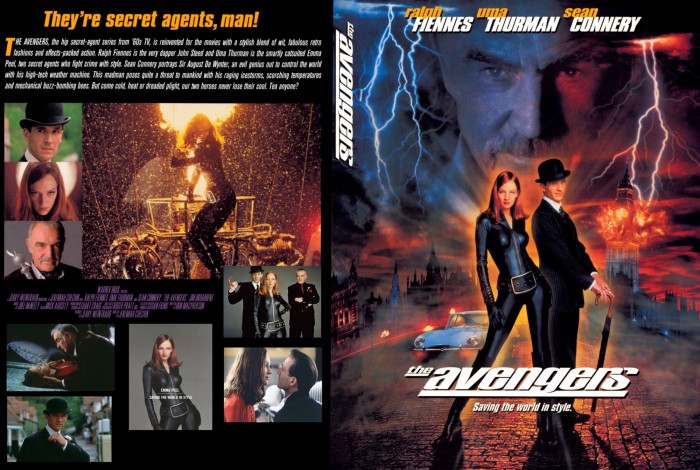
Part 3: In Which a Meltdown Rekindles the Soul
Jeremiah Chechik: When I came back, a couple of things happened. Gail Berman, who was running Regency Television, took me under her wing. She liked me and she started to teach me the ins and outs of television. And soon after that, I started looking for some indie movie to do. And eventually that all kind of focused in on a project that remains one of my favorite things I've ever done: Meltdown [a made-for-TV movie] for FX. Which was just something that really spoke to me in terms of subject: nuclear care at home and domestic terrorism.Blake Harris: What was the production process like (compared to a studio film)?Jeremiah Chechik: It was wonderful. We shot it all in only 21 days. Tight crew. Great cast. Just had an experience that rekindled my love of cinema in a whole different way. And my partner in crime on it, Joel Fields—who's an amazing writer, he's an executive producer for The Americans—he just basically said, "You're born to do TV." And I didn't realize he was right at the time, but I enjoyed it so much that I never stopped working in television after that.Blake Harris: So at what point did you realize that Peter was right, that you were indeed born to do TV?Jeremiah Chechik: The day that Peter Liguori, who was running FX, said to me before shooting, "Once you start working, forget about all the din you're used to hearing. All the comments about dailies and everything. Just make the movie you promised to make me. Do what it is you do."Blake Harris: Wow. That's liberating.Jeremiah Chechik: He also said, "Just cast the best actors." It wasn't about finding A-star, B-star and C to make it work. So I just plunged in, and script, cast, location, shoot and [completion] all happened within about five months. It was so intense and I loved every minute of it. So I knew then that I liked working under that kind of pace.Blake Harris: Your timing—for going from film to television—couldn't have been any better. Was that something you were conscious of at the time?Jeremiah Chechik: Not in the way I am now, but you could definitely see that the industry was changing. The writing was on the wall in terms of where the studios felt they should best spend their money, which was on trying to hit massive home runs. I mean, there used to be a time when studios would make smaller, dramatic projects. And then there was a time when in order to get talent to commit to bigger tentpoles, the studios would be willing to make these personal dramatic projects as kind of a favor to talent, but then they stopped doing that. That may sound a bit disappointing, but what happened during all of that was that those distributors and producers who were interested in making individual, character-based dramatic movies have been able to find a place to tell those stories on television. So as one form of cinema diminished—related to the business, at least—another started to grow. And I was lucky enough to catch that wave.Blake Harris: Right, right.Jeremiah Chechik: So it's been a very, very exciting period to be witness to and work in and participate. And I have no bones to pick with it. I think that in so many ways, the dramatic storytelling in its longer form (aka television) is in so many ways better than film. Because in film you're generally forced to wrap it up and land the movie in a satisfying way. Where in television, the landing of something is actually something you don't want; you want it to continue and provoke the interest in the next sequence, the next storyline...the deepening of character relationships, whatever it is. So, as a lover of process, I'm very enamored with television currently.Blake Harris: That's really interesting, and those are all great points. So much so that let me ask you this: Given the scope of what can be accomplished in television, what would it take for you to even consider returning to a film? Creatively, I mean. Is there anything film can offer than television can't at this point?Jeremiah Chechik: Yes, I think there is. And I think it all comes down to the story. In other words, you read some stories (or imagine some stories [or invent some stories]) that really should be done in, I'll say, a shorter form. So it really depends on the content. For me, I don't really prejudge that...my interest, just as a human, is to do more human stories. And genre nonspecific. But again, there are some films that just feel like they need to be made. Like I look at Tarantino's movies. I don't see how they would benefit from a longer form. They're very satisfying in the form that they have and he's such a great writer that he can land them the way he does. Those are stories that really belong in cinema.Blake Harris: You're completely right. I'll admit that when I asked the question I, myself, was probably leaning towards "no." But Tarantino's movies are a great example and a great reminder of what cinema can offer.Jeremiah Chechik: Yes, but getting people to go the cinema to see sophisticated dramas is another problem. Especially as our TV systems become more sophisticated at home, as our bandwidth grows, as our sound system integrates better, experiencing a film at home becomes greater.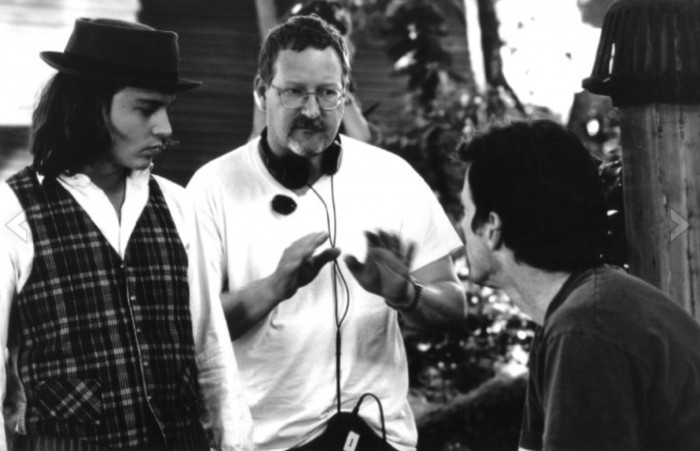 Blake Harris: All very true. Let me just ask you one last question. Since turning to television, you've worked on several great projects: Chuck, The Middleman, The Bronx is Burning and several others. Do you think that if not for what happened with The Avengers, you would have still found your way over to television?Jeremiah Chechik: Well, I don't know. Because if it was wildly successful, maybe I would have become more arrogant and [laughing] taken greater risks and had another terrible experience. Or I would be on the Marvel list or DC list. I mean I have no idea. Now, would that have made me a happier director? I doubt it. Of course the money is great, but the problem is there are always a lot of voices in every decision. So I don't know whether I would enjoy that or not. I can only judge for myself that I'm in a really happy place. I've been working as a director for a really long time, so I never really had to get a real job. And I love telling stories. And I love the process of being on set and focusing my attention on storytelling. I love that. So the form...I don't care. As long as I continue to do that, I feel I'm a quote-unquote "successful" director.
Blake Harris: All very true. Let me just ask you one last question. Since turning to television, you've worked on several great projects: Chuck, The Middleman, The Bronx is Burning and several others. Do you think that if not for what happened with The Avengers, you would have still found your way over to television?Jeremiah Chechik: Well, I don't know. Because if it was wildly successful, maybe I would have become more arrogant and [laughing] taken greater risks and had another terrible experience. Or I would be on the Marvel list or DC list. I mean I have no idea. Now, would that have made me a happier director? I doubt it. Of course the money is great, but the problem is there are always a lot of voices in every decision. So I don't know whether I would enjoy that or not. I can only judge for myself that I'm in a really happy place. I've been working as a director for a really long time, so I never really had to get a real job. And I love telling stories. And I love the process of being on set and focusing my attention on storytelling. I love that. So the form...I don't care. As long as I continue to do that, I feel I'm a quote-unquote "successful" director.


